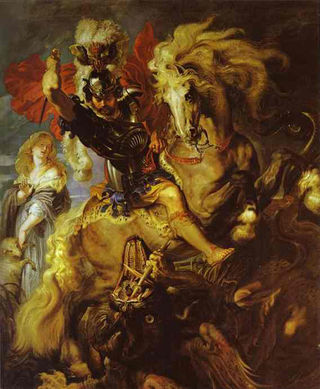Fantasies
Fantasy Choices and the Real Self
People choose fantasy characters that reflect their real selves
Posted August 31, 2016 Reviewed by Lybi Ma
The choices a person makes in a fantasy setting can reveal a lot about their personality. A person’s actual behavior in real life is constrained by the demands of society, but fantasy is not constrained in this way. A number of studies suggest that in fantasy contexts (e.g. story-writing, and role-playing games) people tend to make choices that reflect their actual personality. This is interesting because a fantasy setting allows a person to develop an identity that is completely different from what they are actually like, so people could explore unrealized aspects of their psyche, yet people generally seem to prefer not to stray too far from their real selves. For example, in a fantasy role-playing game, people high in agreeableness are more likely to create good rather than evil characters, even though their choices have no real-world consequences. This might reflect an implicit form of magical thinking, where the psychological similarities between symbolic actions and real actions are too compelling to ignore.
Part of the appeal of fantasy is that it provides people with an outlet to freely enact things that they could not do in real life. Therefore, perhaps a person might enjoy creating a fantasy identity that is quite different from their normal self—e.g. if they are a good and law-abiding person in real life, it might be fun for them to pretend to be the complete opposite in a fantasy context, to let loose from the constraints of mundane reality. On the contrary, however, a number of studies actually suggest that fantasy enactments more often than not reflect rather than complement key features of one’s personality.
One intriguing study (Wilson, Near, & Miller, 1998) had people write a short story about being shipwrecked on a deserted island for a few days with two other people of the same gender as themselves that they did not know well. Participants also completed a questionnaire assessing Machiavellianism, one’s propensity to manipulate and exploit others for personal gain. The researchers then selected stories written by the five highest and the five lowest-scoring authors of each sex on Machiavellianism and had other people read them. The readers were unaware of the purpose of the experiment and did not know anything about the writers of the stories. The readers were asked to score the story writers on Machiavellianism, and had no trouble working out who was high and who was low on this trait. The readers were also asked to rate the authors on a number of other attributes.
Readers rated the low-Machiavellianism story writers as more trustworthy, able to be a good friend, cooperative, and helpful than the high-Machiavellianism writers. On the other hand, they rated the high-Machiavellianism writers as more selfish, uncaring, aggressive, overbearing, and suspicious then the low-Machiavellianism writers. Writers low in Machiavellianism wrote nice stories about getting along well with the other characters and quickly becoming friends with them, whereas writers high in Machiavellianism wrote rather disturbing tales in which the other characters were their enemies and described how they wanted to dispose of them as quickly as possible. I found this interesting because it showed that when people were given an opportunity to write a story in any way they liked with no real-world consequences they chose to do so in a way that revealed their inner selves.
Another study using an online fantasy role-playing game had comparable findings (Ewell, Guadagno, Jones, & Dunn, 2016). In this study, people were asked to create a character for use in an online game based on a similar premise to Dungeons and Dragons. They were told that they would play this character in a solo version of the game and that they could create the character in any way they wanted. One of the features of this game, just like in Dungeons and Dragons, is that players are allowed to select the moral and ethical dimensions of their character. For moral alignment, players can choose from good, neutral, or evil options. For the ethical alignment, they can choose from lawful, neutral, or chaotic options.
Participants also completed measures of the Big Five personality traits, and of moral disengagement, which means the degree to which one is prone to “forgiving or justifying inhumane behavior in certain situations.” Agreeableness and conscientiousness were associated with moral alignment so that people high in these traits were more likely to choose good rather than evil characters, and vice versa for those low in these traits. Higher levels of moral disengagement were also associated with greater preferences for evil rather than good, and chaotic rather than lawful characters. Agreeableness is associated with prosocial traits, such as kindness, cooperativeness, and consideration for others. Conscientiousness is associated with self-discipline, the self-restraint of one’s impulses, and following rules.
Hence, it is not surprising that these traits would be associated with a preference for good rather than evil characters. However, I would have thought that conscientiousness, in particular, would be associated with a preference for lawful rather than chaotic characters, but they were unrelated. Furthermore, women were more likely than men to choose moral (i.e. good rather than evil) and ethical (lawful rather than chaotic) alignments. Differences between men and women in moral and to a lesser extent ethical alignment were accounted for by men in the study being more morally disengaged than women. The authors suggested that people are generally unlikely to deviate too far from their off-line characteristics.

Fantasy role-playing games like this allow a person to enter an imaginary magical world where they can have adventures and assume identities that are not possible in real life. Hence, a person could adopt an evil identity if they want to, without fear of actually harming others. However, relatively few people choose to do so, and those who do tend to be disagreeable in nature. Further support for this comes from a study examining the occupations people chose in fantasy role-playing games and how these were related to their personality traits (Park & Henley, 2007). One of the findings was that agreeableness was positively associated with preferences for playing a monk, paladin, cleric, or druid—all religious/helping occupations—and negatively associated with preferences for playing an assassin or necromancer—occupations focused on death, and that are considered malicious.
This study also found gender differences in moral alignments. Specifically, the majority of females (64.9%) preferred good characters, while only 3.9% of them preferred evil ones, with the remainder neutral. In contrast, most males wanted their character to be neutral (51.9%), while 12.7% preferred evil, with the remainder good. Additionally, males were more likely than females to accept deviant occupations and races (e.g. necromancers and orcs). I found this interesting because men tend to have higher levels of antisocial personality traits, such as the dark triad of narcissism, psychopathy, and Machiavellianism, and this might be reflected in their greater willingness to play dark, malicious characters.
These two studies suggest that a person’s preference for adopting a good or evil identity in a fantasy game may be influenced by their personality traits and moral values to some extent. Perhaps this is because of the psychological similarities between purely symbolic actions, such as those taking place in a fantasy world, and real ones. Hence, agreeable people might be reluctant to play evil characters because of the psychological similarities to actual evil. Disagreeable people might embrace such characters for the same reason.
Another example of an instance where a person’s symbolic actions reflect features of their personality is illustrated in a series of studies using “voodoo” dolls (DeWall et al., 2013). In several studies, participants were told that a doll represented someone close to them, such as their current partner, and that they could release any “negative energy” that they experienced during the study by sticking pins into the doll. (The dolls were never actually described to participants using the word “voodoo” however, and it was never implied that they had actual magical powers.) Participants were also assessed on various measures of aggression in each study, including proneness to physical aggression and violence, as well as behavioral aggression, depending on the particular study. A consistent finding in the studies was that willingness to use the doll, and the number of pins inserted were positively correlated with measures of aggression.
Hence, people who were willing to cause symbolic harm to a voodoo doll were also more likely to harm others in real life. The authors proposed that at some level, although perhaps not consciously, “people transfer characteristics of a person onto a voodoo doll representing that person. As a result, causing harm to a voodoo doll by stabbing it with pins may have important psychological similarities to causing actual harm to the person the voodoo doll represents.” They suggested that people in general are prone to magical thinking, and even if they do not consciously believe that magical effects can occur, people often act as if they can. That is, even though people might consciously consider themselves quite rational, at a more primitive level, people often find it difficult to resist acting on intuitive feelings that reflect magical ideas. More specifically, psychologists describe a magical law of similarity, in which the image of something is treated as if it were the thing itself, and anything that happens to the image will also happen to the thing it represents.

Perhaps the magical law of similarity might help explain why when people enter fantasy contexts, they often tend to identify with characters with similar moral values to themselves. People who are high in agreeableness, for example, might feel more disturbed by the thought of doing evil things, in a fantasy, due to their sensitivity about hurting others. More disagreeable people, on the other hand, might particularly enjoy the opportunity to express their darker impulses, and actually appreciate the magical similarities between symbolic and real acts of aggression. Hence, if people are generally unlikely to deviate too far from their real-life characteristics, it might be because at some level people feel that their fantasy selves magically represent their real selves. Deviating too far from one’s own characteristics might be psychologically disturbing in the sense of creating a feeling that one is no longer one’s true self, even when one is enacting a fictional character.
These findings suggest some interesting questions that could be explored in future research. For example, when people choose to enact evil characters, is this simply a harmless outlet for their disagreeable tendencies? Or on the contrary, do symbolic enactments of evil weaken people’s inhibitions against antisocial behavior in real life? Similarly, if a person could be persuaded against their better judgment to enact an evil character, when they are naturally more inclined to enact a good one, would such an experience cause any psychological problems, such as disturbing feelings of dissonance, or would most people take it into their stride, knowing that the character is not real after all? In any case, people who play fantasy role-playing games might want to be careful about associating in real life with other players who enact evil characters.
References
Image Credits
St. George and the Dragon, Peter Paul Rubens, 1607
Pin stuck with dolls, from the Museum of Witchcraft, via Wikimedia Commons
References
DeWall, C. N., Finkel, E. J., Lambert, N. M., Slotter, E. B., Bodenhausen, G. V., Pond, R. S., . . . Fincham, F. D. (2013). The voodoo doll task: Introducing and validating a novel method for studying aggressive inclinations. Aggressive Behavior, 39(6), 419-439. doi:10.1002/ab.21496
Ewell, P. J., Guadagno, R. E., Jones, M., & Dunn, R. A. (2016). Good Person or Bad Character? Personality Predictors of Morality and Ethics in Avatar Selection for Video Game Play. Cyberpsychology, Behavior, and Social Networking, 19(7), 435-440. doi:10.1089/cyber.2015.0207
Park, A. E., & Henley, T. B. (2007). Personality and Fantasy Game Character Preferences. Imagination, Cognition and Personality, 27(1), 37-46. doi:10.2190/IC.27.1.d
Wilson, D. S., Near, D. C., & Miller, R. R. (1998). Individual Differences in Machiavellianism as a Mix of Cooperative and Exploitative Strategies. Evolution and Human Behavior, 19(3), 203-212. doi:10.1016/S1090-5138(98)00011-7




